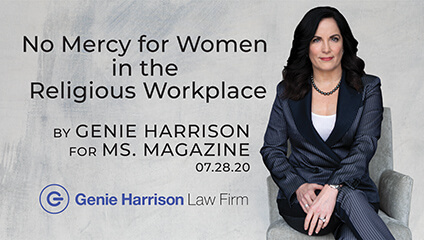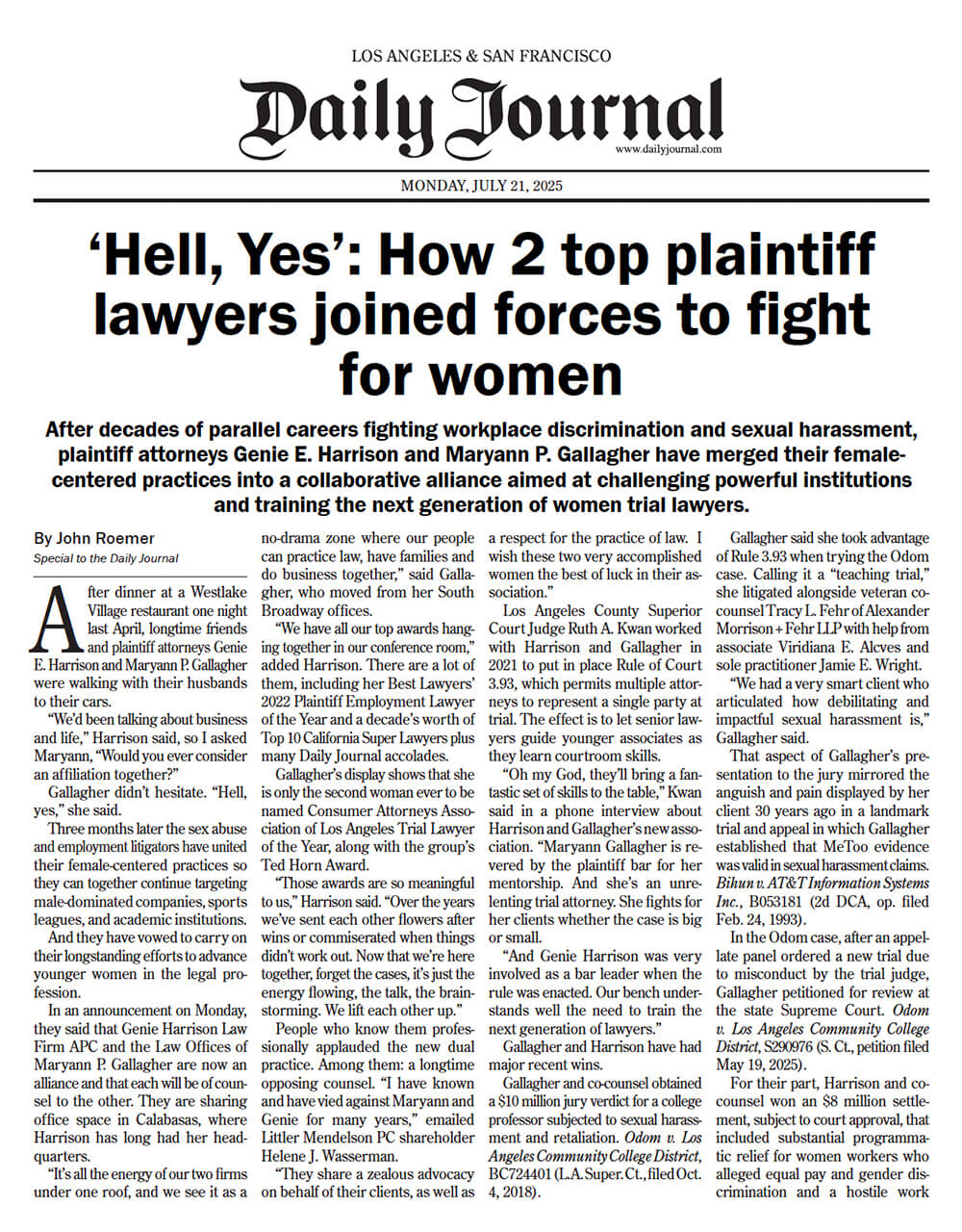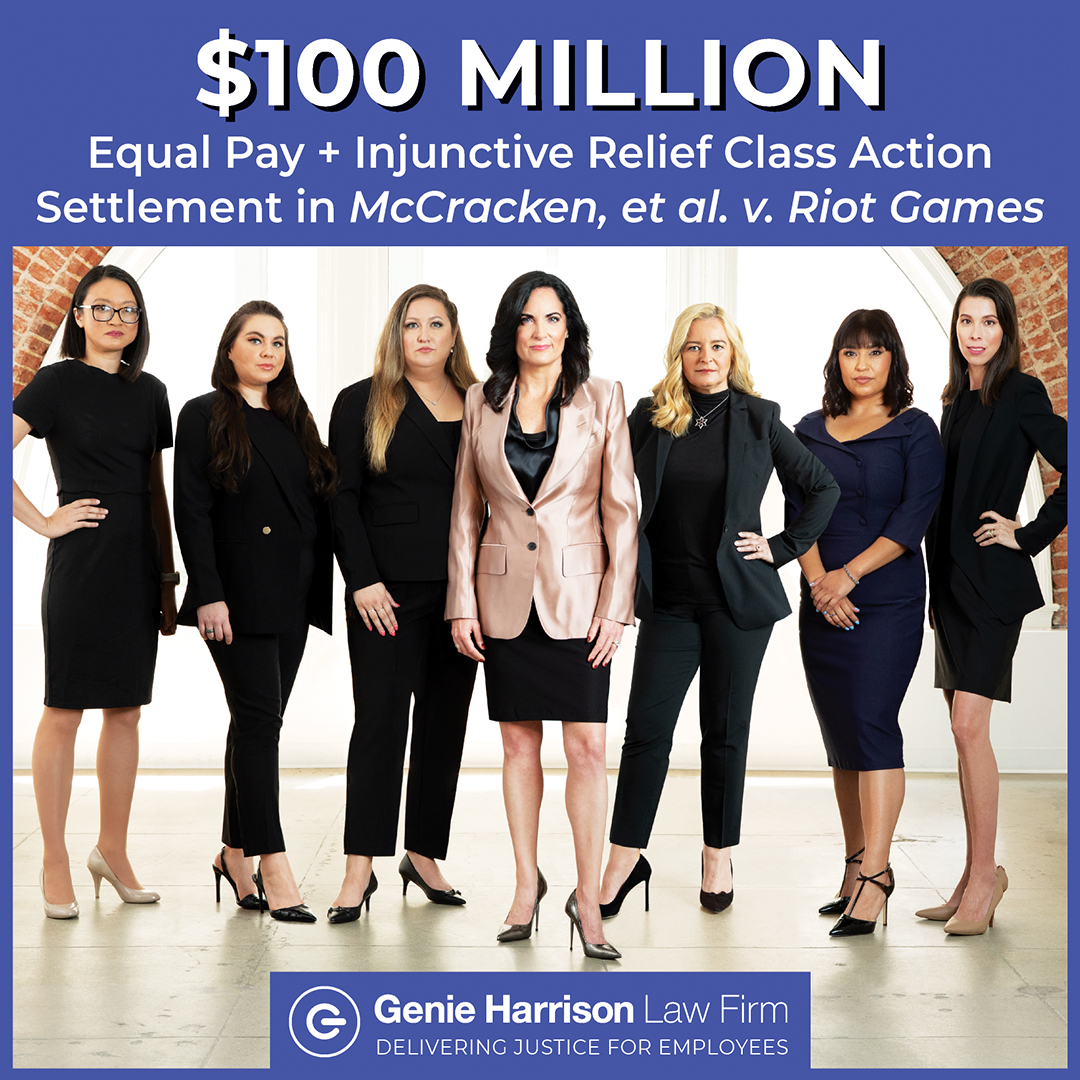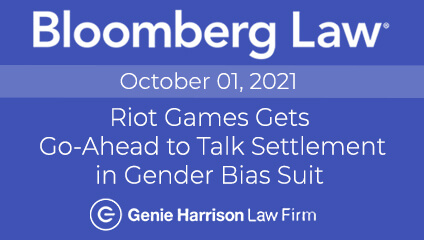No Mercy for Women in the Religious Workplace
July 28, 2020 — by Genie Harrison for Ms. Magazine
(Read the story below, or at MsMagazine.com)
It’s a brand-new day under Title VII for gay and transgender people in the workplace—but the U.S. Supreme Court says it’s another century for people employed by religious organizations.
In two cases brought on behalf of women educators employed by parochial schools, the nation’s highest court handed religious employers an almost total pass on anti-discrimination laws. In a one-two punch, on July 8, the Court held that birth control doesn’t have to be covered under the Affordable Care Act and that religious schools can fire educators for any reason, including discriminatory ones.
The message, unfortunately, is that if women want to be protected in the workplace, they’d better not hitch their wagons to organizations governed by a higher power.
In Trump v. Pennsylvania, the court stripped as many as 126,000 women of their ability to obtain birth control as part of their health plans. Siding with the Trump administration, the court decreed that the ACA’s contraceptive mandate violates the Religious Freedom Restoration Act (RFRA). The decision extends to both nonprofit and some for-profit entities that have religious or moral objections to contraceptives.
In two consolidated cases, Our Lady of Guadalupe School v. Morrissey-Berru and St. James School v. Biel, religious schools were given a green light to discriminate against teachers based on protected classifications such as age, disability and race.
Both teachers in these cases worked in California Catholic schools. Biel was told that her contract would not be renewed after she was diagnosed with breast cancer. Morrissey-Berru was let go because she was older. In any other workplace, these would have been no-brainers: a violation of the Americans with Disabilities Act (ADA) and a clear case of age discrimination under the Age Discrimination in Employment Act (ADEA).
The teachers weren’t trained or hired as ministers—but that didn’t stop the court from deciding that they were subject to a “ministerial exception,” exempting their employers from complying with workplace discrimination laws. That Biel and Morrissey-Berru chose to teach children in a faith-based educational setting was the kiss of employment death for them.
Writing for a seven-justice majority, Justice Samuel Alito said:
“When a school with a religious mission entrusts a teacher with the responsibility of educating and forming students in the faith, judicial intervention into disputes between the school and the teacher threatens the school’s independence in a way that the First Amendment does not allow.”
Federal workplace discrimination laws such as the ADA and the ADEA were enacted for the express purpose of protecting the most vulnerable among us, including the sick and the aged. The right to work is fundamental to who we are, and its existence shouldn’t be dependent on who hires us.
However, it’s clear that if a woman works for a certain type of employer—namely, a religious one—she may not have access to birth control and she could be fired for getting sick or old.
There is no quick fix for this problem. Short of refusing to work for companies with restrictive moral codes (think Hobby Lobby) or religious organizations, women can only hope that they don’t age too quickly or contract a major illness or disability that could lead to their termination. Even if they stay young and healthy, however, they can still be fired for speaking up against activities prohibited by Title VII, like sexual harassment, unequal pay practices or racial discrimination.
If you really want to teach in a religious school, I have a Hail Mary suggestion: Try inserting language into your contract stating that you are not a religious educator and that you will play no role in shaping the religious beliefs of your students.
It probably won’t fly at the beginning, but if enough educators make this a condition of their employment it could become a challenge for religious schools to keep their doors open. Let’s give it a try.
Learn more about tactics to combat workplace discrimination from Genie Harrison.





